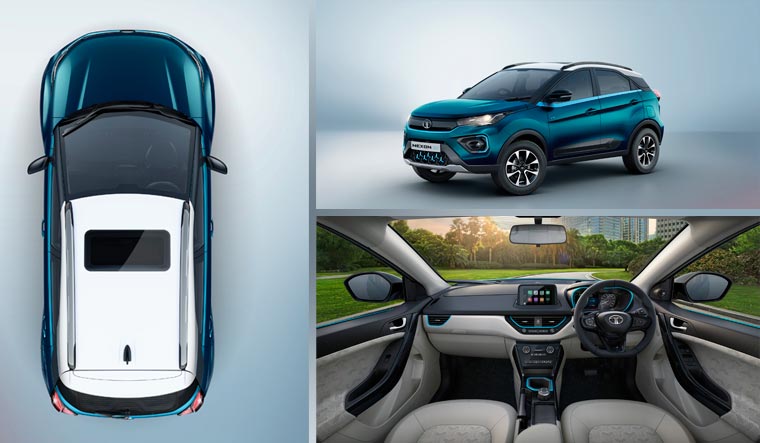
This post is a part of EV Next’s EV Perspectives. EV Next, a division of EAI, is a leading market intelligence & strategic consulting firm for the Indian e-mobility sector.
A well-written review in the Financial Express of the newly launched Tata Nexon EV caught the EV Next team’s attention.
Net Zero by Narsi
Insights and interactions on climate action by Narasimhan Santhanam, Director - EAI
View full playlistSome interesting aspects:
- It is IP 67 certified, so that should make buyers more comfortable about the battery safety during rains and floods
- In sports mode, it accelerates from 0-100 kph in less than 10 seconds, far faster than what a diesel or petrol variant can
- The top speed has been electronically limited to 120 kph to save battery fast. This could be a concern under certain circumstances, as the author points out.
The economics
And there was a section on the news report on the prices and cost of ownership of Nexon EV vs. the petrol and diesel avatars. This is where we started getting a bit more interested.
“Ex-showroom prices of the Nexon EV start at Rs 13.99 lakh for the entry-level model, to Rs 15.99 lakh. It’s definitely expensive compared to petrol/diesel, but it’s also unique in more ways than one. One, it won’t come with a 10-year or 15-year expiry date. Two, Tata estimates the Nexon EV’s running cost at about Rs 1 per km (petrol/diesel is Rs 5-6 per km), and lower maintenance cost (50% lower owing to lesser moving parts, minimal lubrication and the eight-year battery warranty).”
The report had gone on to compare cost of ownership of these versions based on the above data, and showed how, the end of the fifth year, the cost of ownership for all three cars were almost the same. That is, the extra investment you make on buying an EV version gets paid back in about five years, and post that, every Km you drive, you actually spend less with an EV. By the way, if you drive more per day (high capacity utilization), the payback will be even shorter than 5 years.
This payback of 5 years will only get better with time as battery prices decrease from the current about Rs 15000/kWh to less than 10000/kWh in about 3 years’ time.
Payback for electric vehicles (including cars) could become less than 5 years soon. That will the time when the real growth starts
Some inferences for Indian electric car growth
These comparative metrics lead us at EV Next to feel that the real constraint for electric car sales in India even in the short term is unlikely to be price, but rather two other challenges – long charging times and lack of public charging infrastructure. Besides of course the question of any unique benefits that these provide over conventional vehicles.
While there is progress on both these fronts (long charging times and lack of charging infra), we at EV Next feel it will take at least 2-3 years before impactful changes have happened on both these.
All these point to 2023 as the year when electric car sales could start growing seriously fast in India. Even prior to that, expect sales of two wheelers and three wheelers to accelerate as the two challenges we have mentioned (long charging times and lack of public charging infrastructure) are less of a problem for these compared to cars.
2023 is the pivotal year for electric cars in India, based on EV Next analyses. Expect electric car sales to be very low and sluggish until then
==
This post is a part of EV Next’s EV Perspectives. EV Next, a division of EAI, is a leading market intelligence & strategic consulting firm for the Indian e-mobility sector.
Know more on how EVNext can assist your business in your strategy for the e-mobility and electric vehicles sectors, from here. Know more.




 Our specialty focus areas include
Our specialty focus areas include




